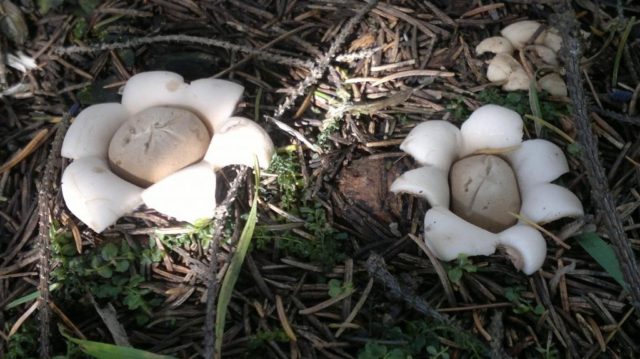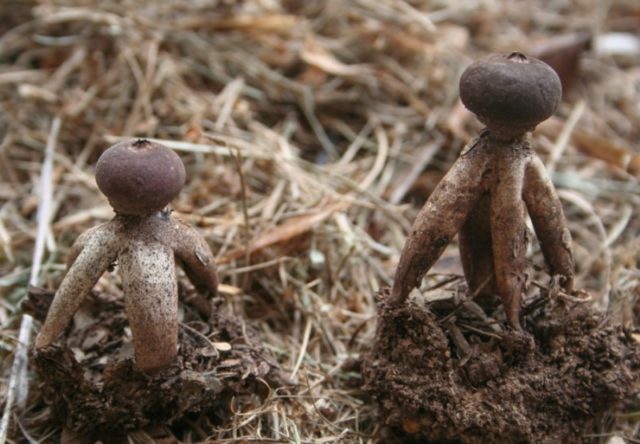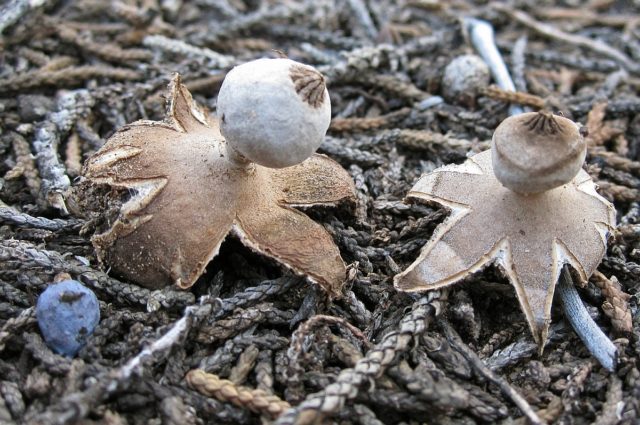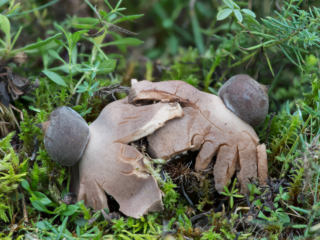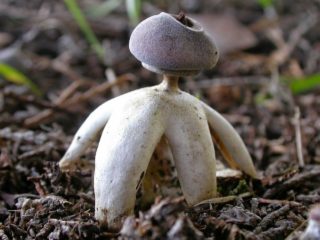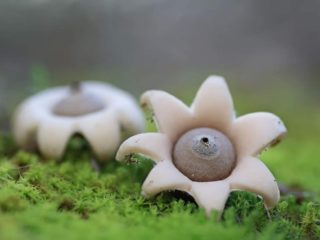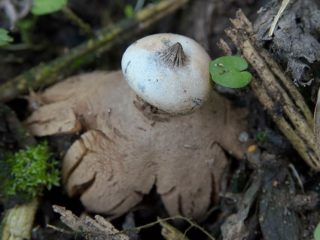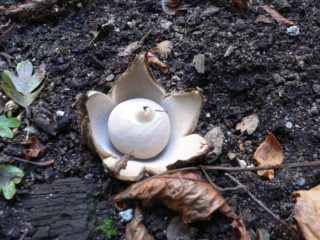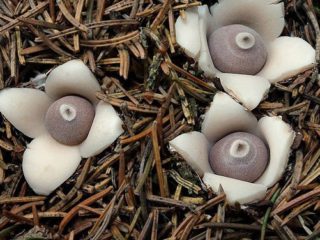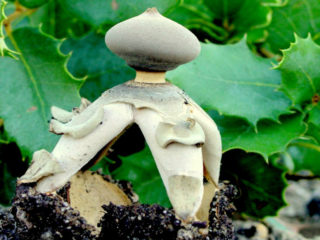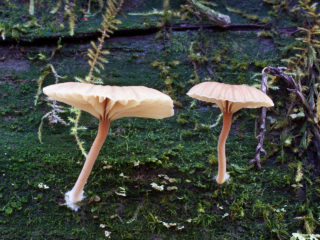Content
Black-headed starfish is a bright, inedible specimen from the Geastrov family. It grows in deciduous forests, in regions with a warm climate. A rare species, so when you find it, it is better not to pick it up, but to walk by.
What does a black-headed starlet look like?
Black-headed starfish has an original, unusual fruiting body. A small pear-shaped or spherical mushroom ends with a pointed nose of whitish or brown color. In a young specimen, the inner shell adheres tightly to the outer one. As it matures, a rupture occurs, and the fungus breaks down into 4-7 blades, exposing the internal spore-containing substance (gleba).
The dark coffee pulp is dense, becoming fibrous and loose as it matures. At full maturity, the gleb breaks open and coffee or light olive spores are sprayed through the air, thus forming new myceliums.
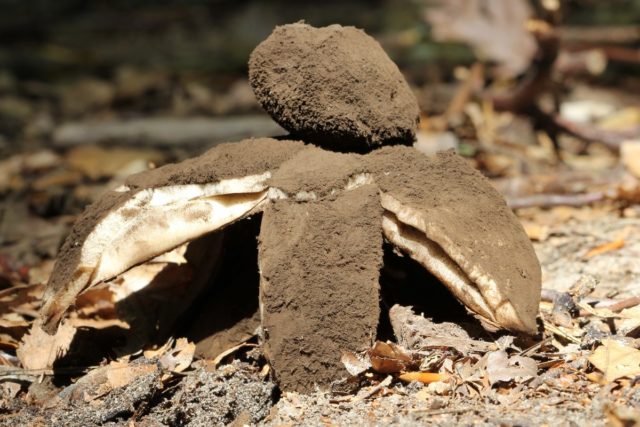
Ripening, the mushroom takes on the shape of a star.
Where and how it grows
Black-headed starfish is a rare species that grows in regions with a comfortable climate. It can be found in the mountainous areas of the Caucasus, in the deciduous forests of South and Central Russia, in parks and squares of the Moscow region. Fruiting occurs from August to late September.
Is the mushroom edible or not
Black-headed starfish is not used in cooking. But thanks to its beautiful, bright shape, it is suitable for a photo shoot. The mushroom has no nutritional value, belongs to the category of inedible species, but has found wide application in folk medicine:
- young species, cut into thin strips, are used instead of a plaster, hemostatic material, for quick wound healing;
- Healing tinctures are prepared from ripened spores.
Doubles and their differences
The species, like every fruiting body, has similar twins:
- Small star - develops underground, as it grows, appears on the surface and breaks apart in the shape of a star. The species is widespread in open areas, it can be found in the steppes, meadows, within the city. It prefers to grow in fertile, calcareous soil in small groups or in a witch circle. They are not used in cooking due to the lack of taste and smell.
An unusual species grows on a coniferous substrate
- FROMwatery - conditionally edible specimen. The fruit body develops in the bowels of the earth, as it matures, it appears on the surface and breaks apart in the form of a star. The surface is colored brown, the spore-bearing ball is flattened, fawn color.
Only young specimens are eaten.
- Schmidel's star - small mushroom. It originates underground, during the ripening period it appears above the deciduous substrate, cracks, exposing the inner spore-bearing layer. Fruiting occurs in autumn, only young specimens are used for food.
Rare species, young mushrooms can be eaten
Conclusion
Black-headed starfish is an inedible representative of the mushroom kingdom. It is rare, prefers to grow in autumn, among deciduous trees. Due to its original shape, even a novice mushroom picker can recognize it.
